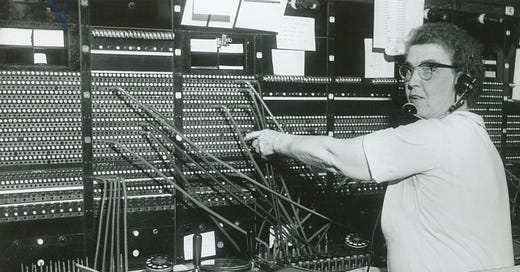Grandpa says: What really zapped me in a way I’ve still not completely come to grips with is the extent to which the world of computers is much BIGGER THAN THE WORLD ITSELF. And I mean that literally. When you told me about this electronic phenomenon literally beyond this world thangy called THE CLOUD, I literally flipped. Really. The CLOUD is a wo…
Keep reading with a 7-day free trial
Subscribe to Stoic Observations to keep reading this post and get 7 days of free access to the full post archives.




